Index relies entirely on the support of donors and readers to do its work.
Help us keep amplifying censored voices today.
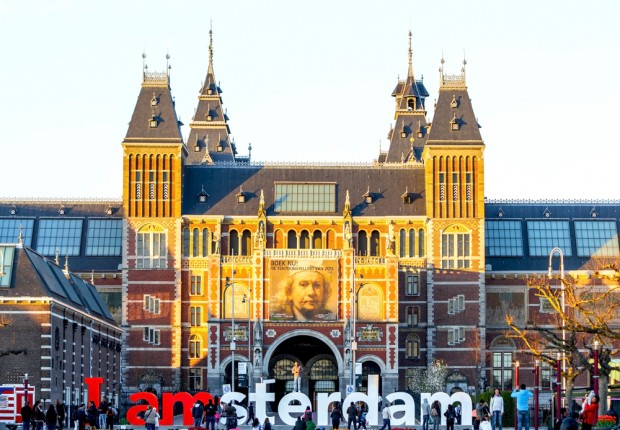
Rijksmuseum, Amsterdam. Credit: Shutterstock / Littleaom
Amsterdam’s Rijksmuseum is in the process of removing terms visitors may find offensive, including “negro”, “dwarf” and “Indian”, from digitised titles and descriptions of around 220,000 pieces of artwork, replacing them with less racially-charged terminology.
The titles of 8,000 pieces of art on display were updated in time for the museum’s reopening in 2013 after a decade-long renovation, and the museum has now begun work to remove “offensive” language from the museum’s digitised collections.
This includes a 1900 painting by Dutch artist Simon Maris originally called “Young Negro-Girl” which will now be called “Young Girl Holding a Fan”.
The head of the Rijksmuseum Martine Gosselink, who initiated the project said: “The point is not to use names given by whites to others.”
“We Dutch are called kaas kops, or cheeseheads, sometimes, and we wouldn’t like it if we went to a museum in another country and saw descriptions of images of us as ‘kaas kop woman with kaas kop child’,” she added: “And that’s exactly the same as what’s happening here.”
Other words to be removed from the collections include Mohammedan, an old word for Muslim; and Hottentot, a name given to Dutch people by the Khoi people of South Africa, meaning stutterer.
In the latest issue of Index on Censorship magazine, which tackles taboos and the breaking down of social barriers, Kunle Olulode discusses the problems with editing out racist language from books and films. “Should we not accept that films and TV programmes set in the past will include some stereotypical images of minorities?”, he writes. However uncomfortable these words may seem, they should not be censored as they provide vital insights into history.
Leading cartoonists step into the ring with heavyweight commentators for a quick-thinking, rapid-fire, free speech fight club: should anything be off limits for cartoonists?
Featuring:
When: Sunday 9th August, 4.30pm
Where: Secret Forum, Wilderness Festival, Oxfordshire (Map/directions)
Tickets: available via Wilderness Festival
Presented in partnership with Sunday Papers Live

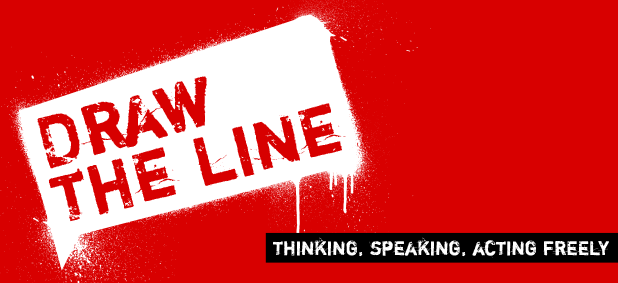
Growth can only happen when old obsolete ideas are replaced with newer, relevant ones. If we don’t challenge the established system of thought, we can’t move forward. If ideas that don’t work anymore aren’t rejected, new ones won’t find space. Without new and better ideas there is no movement in any field. Freedom of speech and expression is fundamental to that forward movement and as Salman Rushdie said, “What is freedom of expression? Without the freedom to offend, it ceases to exist”
We opened up the debate with Charlie Hebdo on our minds. The Hebdo massacre changed the world. Now there is an actual discourse on free expression across the globe. The world is coming together and expressing themselves collectively. Our twitter feed is proof of that. While a lot of people believe that the right to offend comes with the right to free expression, there are people who say that anything that leads to violence is wrong, and there is a fine line there which needs to be observed.
This is where we draw the line: somewhere in the ever-changing grey area between absolutism and stagnancy.
Below, are some young people from across India, who used photographs to join the #IndexDrawtheLine discussion. If you’d like to join the debate, tweet your photos or answers to #IndexDrawtheLine.
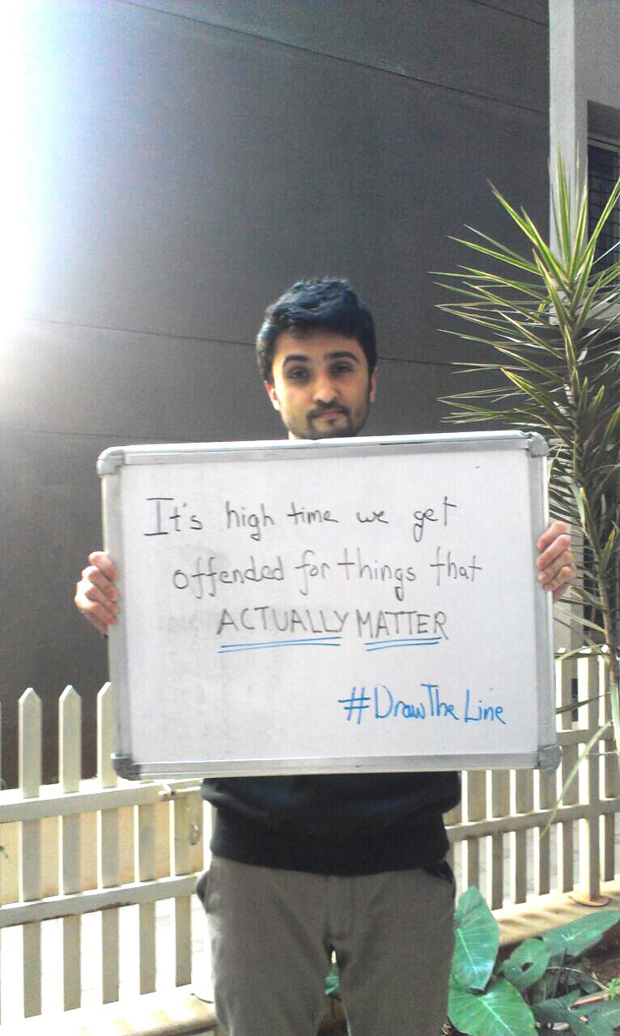
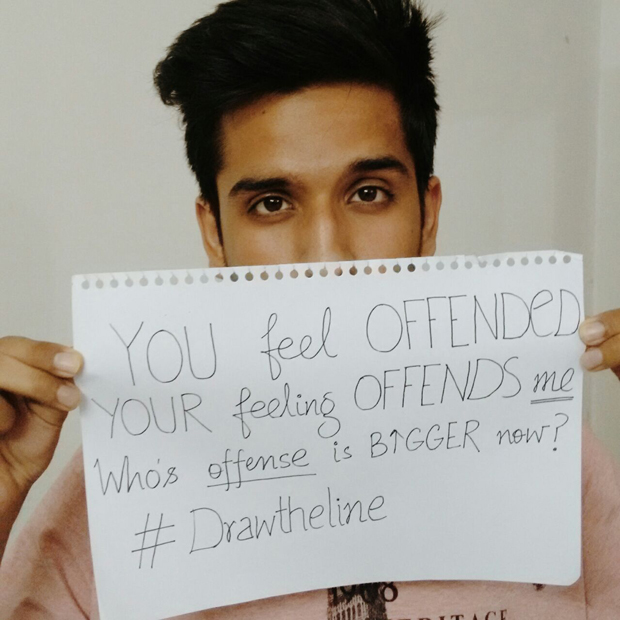
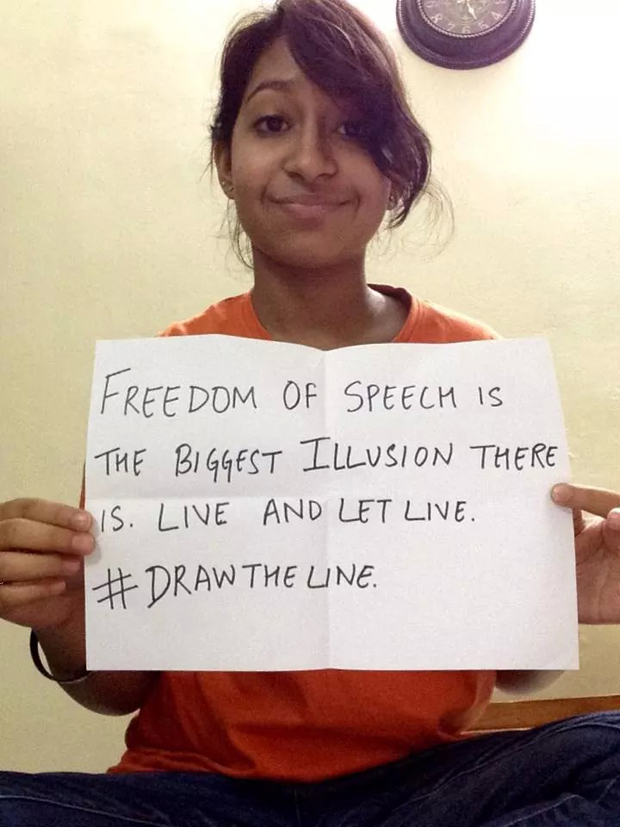
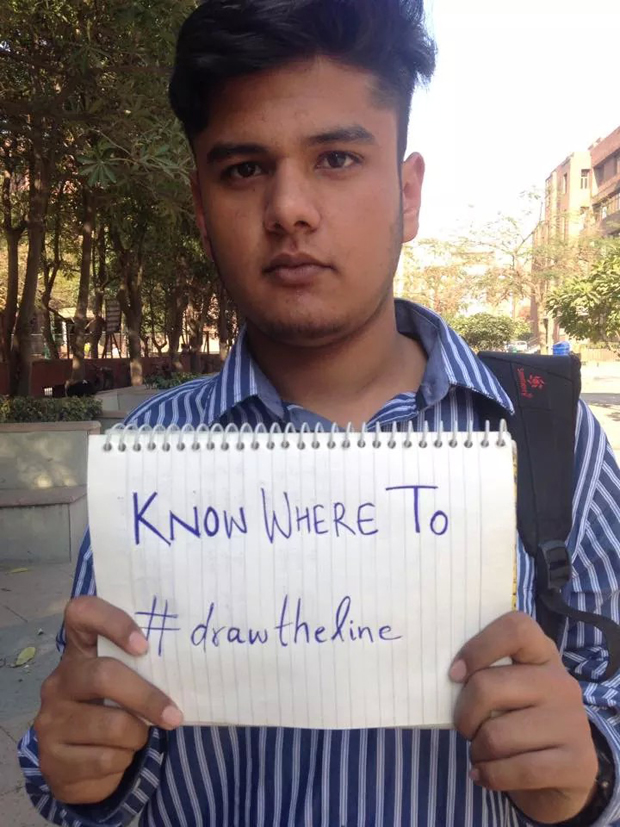
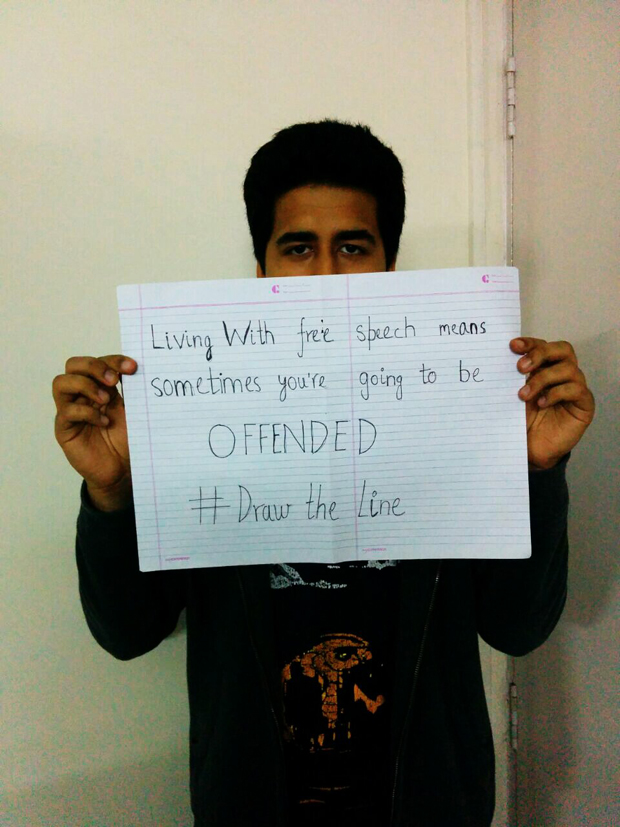
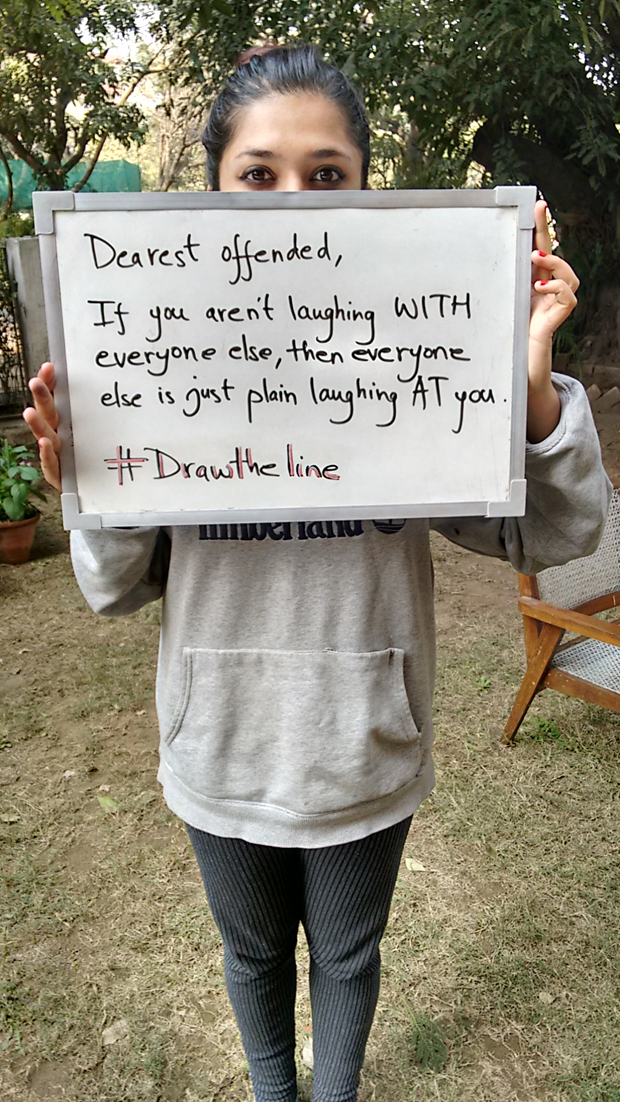
This article was posted on 16 February 2015 at indexoncensorship.org
Censorship, and the degree to which we self-censor, is becoming an increasingly difficult, yet pressing and vitally important, topic of debate amongst an ever-growing international community.
Now, in the internet age, it has never been easier to connect and communicate with so many different people from all across the world. With these wide reaching forms of communication, and various people calling for censorship at different levels, the extent to which offence is considered an acceptable and fundamental part of free speech, has been called into question.
In the wake of the Charlie Hebdo killings, some world leaders have spoken publicly against self-censorship. Australian Prime Minister Tony Abbot urged media in the country to not resort to self-censorship. Some believe that certain groups, communities or organisations should be exempt from satire, criticism or insult. Others might argue that without the right to offend, a proper line of communication can never truly be attained, that no group should be exempt, and that people have the right to offend and be offended, but not to resort to violence and extremism.
This poses the question: is causing offence, and the ability to be offended, a fundamental part of freedom of expression? And, if we remove the right to offend, does this then close down the space for free and open debate?
Tweet your thoughts to #IndexDrawtheLine to get involved in the debate.
This article was published on 28 January 2015 at indexoncensorship.org